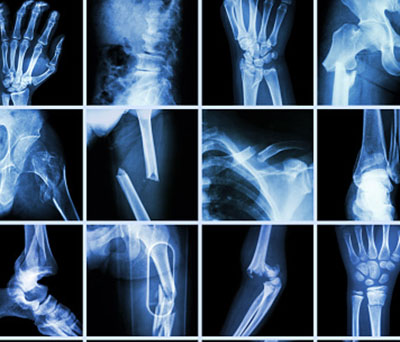
With our aging population, osteoporosis has become a problem of epidemic proportions. Falls resulting in broken bones can sometimes mean the end of independent living. Both men and women need to know the facts of bone loss.
Washington University bone health specialist Naga Yalla, MD, explains, “Osteoporosis is a disease characterized by low bone mass and structural deterioration of bone tissue. This leads to fragility and increased susceptibility to fractures of the hips, spine and wrists.
Anyone can develop osteoporosis, but it is more common in women. It is estimated that one out of five American women over the age of 50 have osteoporosis, and about half of those women will have a bone fracture.”
The key to effective treatment starts with precisely measuring and tracking changes in bone density. Washington University uses the DXA system (dual energy X-ray absorptometry). DXA provides a safe, inexpensive and accurate means of measuring bone density.
The initial DXA provides a baseline measurement, or point of comparison, for future measurements. Repeated measurements at specified intervals assure consistency, as well as an accurate means to monitor bone health. DXA also helps physicians assess the likelihood of developing fractures.
Dr. Yalla and all of our technologists are International Society of Clinical Densitometrists (ISCD) certified, as well as all Washington University physicians who read the DXAs.
Building strong bones is a life-long process. You can take steps at any age to prevent osteoporosis and other bone diseases. Diets rich in calcium, regular weight-bearing exercise and a healthy lifestyle all help preserve bone health.
For more information on bone density testing, or to make an appointment with one of our bone health specialists, please call 314-454-7775.
Patients are seen at two convenient locations:
Center for Advanced Medicine, in the Medicine Multispecialty Center
4921 Parkview Place, Suite 5C
Barnes-Jewish West County Hospital
Medical Building Two, Suite 200, 10 Barnes West Drive